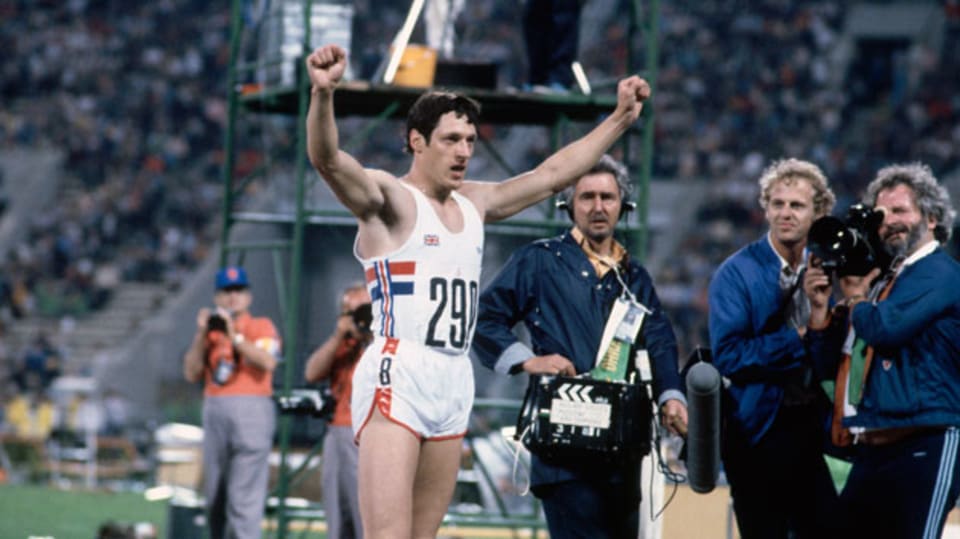
With the likes of Stanley Floyd and Harvey Glance being forced to watch from home in the United States, the favourites after the early rounds appeared to be Cuban Silvio Leonard, Italian floater Pietro Mennea and Pole Marian Woronin.
The fact that Scotland’s Wells was there at all was something of a minor miracle.
The powerful Scot had been subjected to a barrage of propaganda, some from the British government itself, attempting to persuade him to join the boycott.
Wells in fact said that one picture which seemed to portray the body of a dead child made his mind up to go and compete in the Soviet Union.
He went to Russia on the back of some excellent form: he had won the 200m Commonwealth Games gold in Alberta in 1978 and was the British champion over 100m and 200m.
While the likes of Mennea floated over the ground, Wells was a powerhouse sprinter. Barrel- chested and rippling with muscle, Wells possessed a raw power and an iron will which would prove formidable.
He broke the British record in the quarter-final, and his increasingly impressive performances saw him reach the final as one of the favourites.
In his way lay the mercurial Leonard, the multiple Pan-American Games champion.
The two key protagonists were unusually drawn on the inside and outside lanes for the final and with 60 metres of the race over, it was clearly a two-horse race.
Wells looked to have edged clear when he started an extraordinarily early dip for the line. Leonard seemed to strike back in the closing strides, but with both men given the same time it was Wells who won the gold on a photo finish.
He remains the last white athlete to win the men’s 100m at the Olympic Games, and was the first Briton to win gold since Harold Abrahams back at the 1924 Games in Paris.
Wells missed out by a whisker on a memorable 100-200m double when the elegant Mennea pipped him at the line in the 200m final.
A matter of days after the Games, Wells accepted an offer to run against the best America could offer and in Koblenz went some way to showing he was the world’s fastest man by beating Floyd, Glance and a young Carl Lewis.
